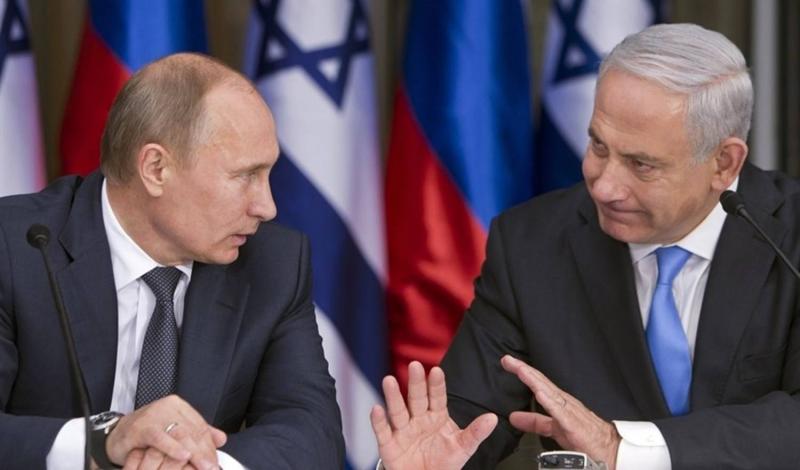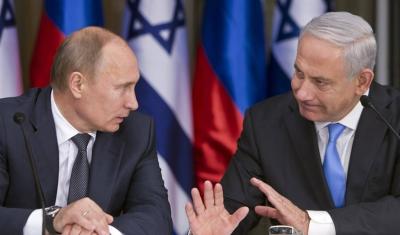Russian President Vladimir Putin received a phone call from Israeli Prime Minister Benjamin Netanyahu, during which they discussed several international issues, most notably the situation in the Middle East.
The Kremlin published a statement on the Russian presidential website noting that President Putin spoke with Prime Minister Netanyahu about various international issues. The statement continued that the two sides exchanged views on current matters on the international and regional agenda, especially in the context of the current situation in the Middle East. For his part, Netanyahu tweeted on his official Twitter account on Monday evening that he spoke by phone with President Putin and discussed several issues of mutual interest.
Netanyahu indicated that he discussed several regional and international topics with President Putin, primarily focusing on the situation in the Middle East, as well as the necessity of continued coordination between Israel and Russia to address the security developments in the region. It is noteworthy that Russian-Israeli relations are characterized by strength and distinction, as evidenced by Netanyahu's repeated visits to Moscow, which have exceeded ten for various reasons. One could assume that Netanyahu has his own motivations for these frequent visits, including election-related reasons such as courting Russian votes in Israel and suggesting to his audience that he is an important statesman who maintains good relations with most world leaders.
Additionally, President Putin made a historic visit, being the first Russian leader to visit Israel, while also ensuring he visited Palestinian territories. The topics of Iran and Syria often take up significant space in their joint discussions, although many of Netanyahu's visits have been overshadowed by performative aspects.
Moreover, both Russia and Israel announce their desire to develop cooperation and trade exchange at every opportunity. They have signed over twenty agreements for cooperation in various areas including modern technologies, gas and energy, space research, and a series of agreements in fields such as tourism, agriculture, science and technology, health, aviation, education, culture, customs transactions to prevent double taxation, communications, and combating crime, among others. Israel has also seized opportunities to express appreciation for its relationship with Russia, abstaining from voting at the United Nations during the discussion on Russia's annexation of Crimea in 2014, which angered Washington and European Union countries.




